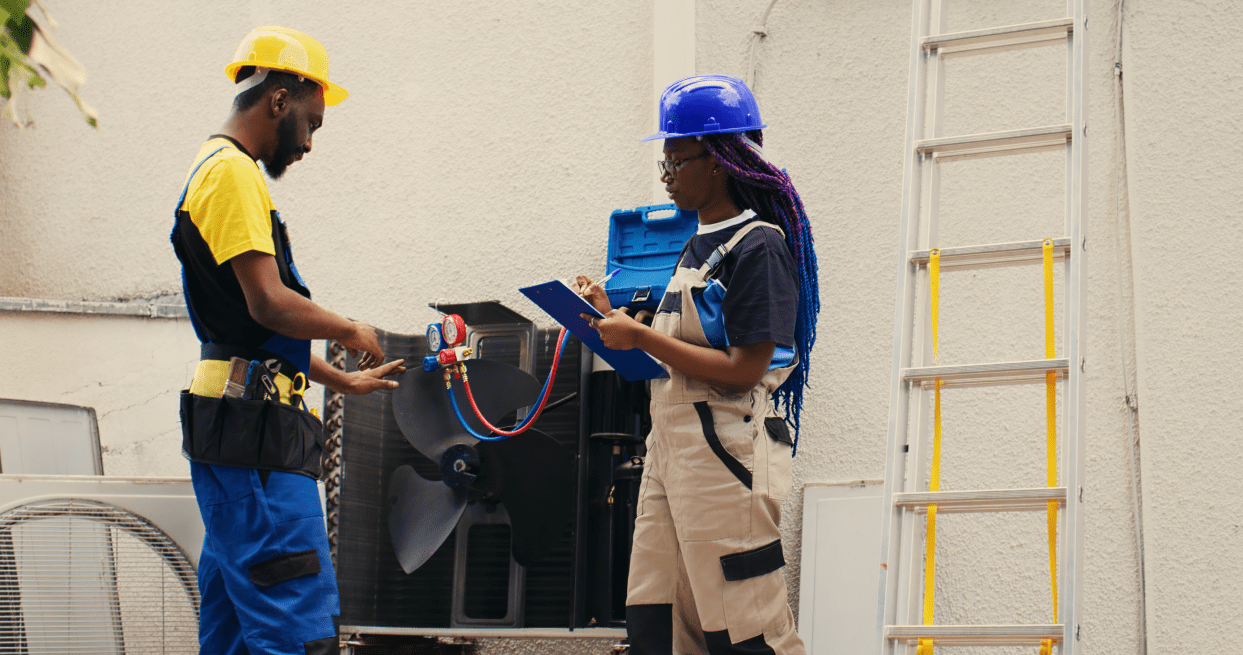Understanding HVAC System Commissioning: Ensuring Performance and Efficiency
A well-built HVAC (Heating, Ventilation, and Air Conditioning) system is critical to occupant comfort and building efficiency. But simply installing the right equipment isn’t enough. HVAC system commissioning is a vital process that ensures your system performs as intended, operates efficiently, and delivers optimal comfort throughout the building’s lifespan.
What is HVAC System Commissioning?
Commissioning is a methodical procedure that ensures your HVAC system is installed, calibrated, and operational in accordance with design specifications and industry standards. It’s essentially a quality control check that ensures your investment in a new or upgraded HVAC system translates to real-world benefits.
Benefits of HVAC System Commissioning:
- Enhanced HVAC Efficiency: Commissioning identifies and corrects inefficiencies in the system, leading to lower energy consumption and reduced operational costs over time.
- Improved Comfort: A properly commissioned system ensures consistent temperature and humidity control throughout the building, creating a more comfortable environment for occupants.
- Extended Equipment Life: Commissioning helps identify potential equipment issues early on, preventing premature wear and tear and extending the lifespan of your HVAC system.
- Reduced Maintenance Costs: Identifying and fixing any issues at commissioning can save you money on future repairs and maintenance.
- Peace of Mind: Knowing your residential HVAC efficiency is operating optimally provides peace of mind and ensures your building is functioning at peak efficiency.
What Does the Commissioning Process Entail?
The commissioning process typically involves several key stages:
- Planning: This stage establishes the commissioning goals, timeline, and identifies key stakeholders involved in the process.
- Design Review: Commissioning specialists review the residential HVAC system design to ensure it aligns with building requirements and energy efficiency standards.
- Installation Verification: This stage ensures equipment is installed correctly, meets manufacturer specifications, and adheres to safety regulations.
- System Startup and Testing: The commissioned system is then tested under various operating conditions to verify performance and identify any issues.
- Documentation and Training: The commissioning team provides detailed documentation of the system’s operation and maintenance procedures for building personnel.
- Ongoing Monitoring: Ideally, a commissioning plan should include provisions for ongoing monitoring to ensure the system continues to perform optimally over time.
Who Performs HVAC System Commissioning?
Commissioning should be conducted by a qualified and independent commissioning authority (CxA). A CxA is a professional with expertise in HVAC systems and commissioning procedures, ensuring an objective and thorough evaluation.
Investing in Efficiency and Comfort
HVAC system commissioning might seem like an additional step, but its long-term benefits outweigh the initial investment. By ensuring optimal performance and efficiency from the outset, commissioning helps you save money on energy bills, extend equipment life, and create a more comfortable and healthier environment for building occupants. Consider commissioning as an essential investment in the overall health and performance of your residential HVAC system.
HVAC System
• HVAC Efficiency
• Residential’s HVAC Efficiency

